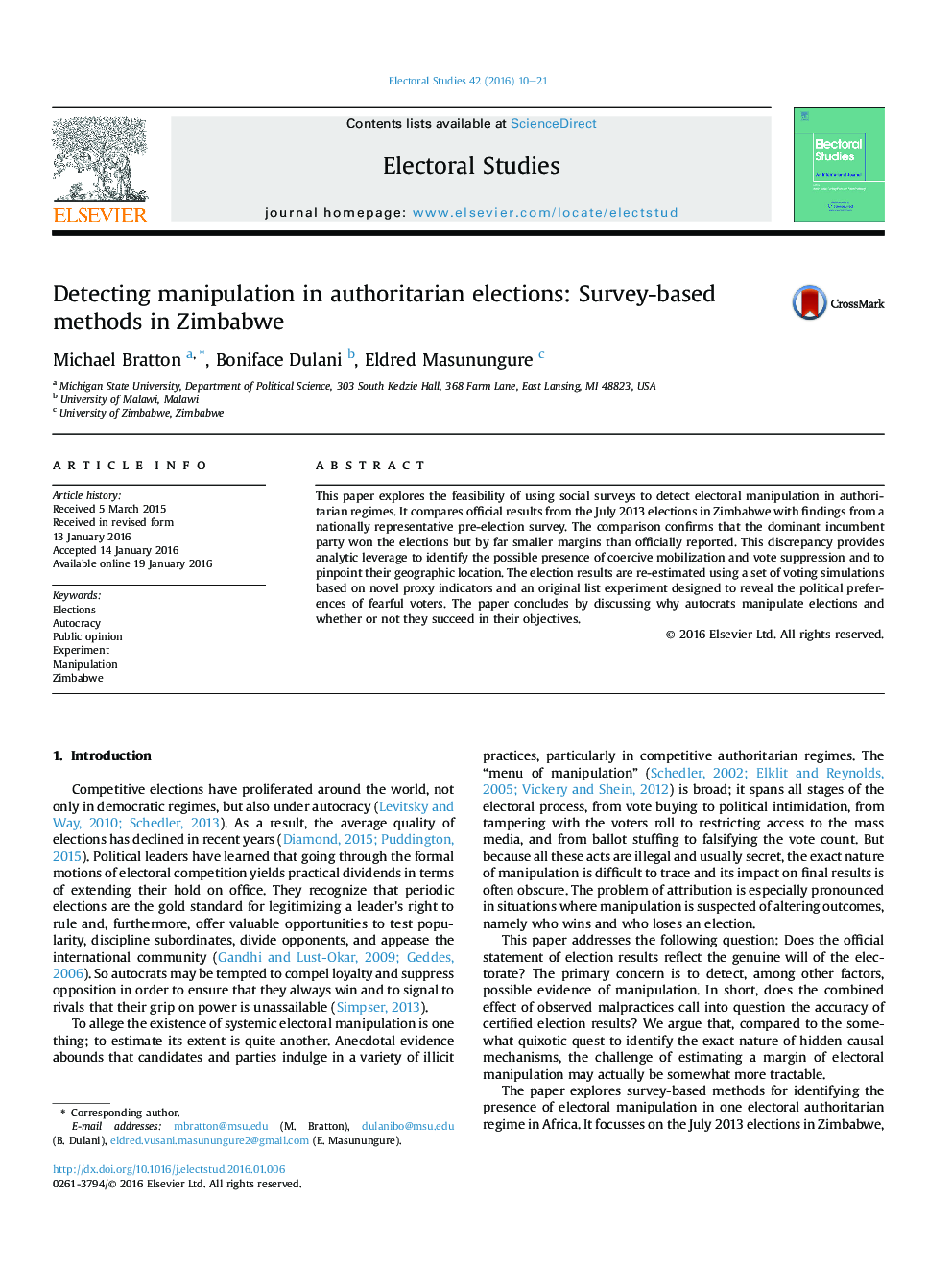| Article ID | Journal | Published Year | Pages | File Type |
|---|---|---|---|---|
| 1051668 | Electoral Studies | 2016 | 12 Pages |
•Pre-election surveys are a supplementary tool in the election monitor's toolkit.•The incumbent's margin of victory in Zimbabwe 2013 was far smaller than reported.•Much electoral manipulation occurs before elections and in rural locations.•Fearful voters were intimidated to support the incumbent president's party.•Voting simulations to account for self-censorship suggest alternate election outcomes.
This paper explores the feasibility of using social surveys to detect electoral manipulation in authoritarian regimes. It compares official results from the July 2013 elections in Zimbabwe with findings from a nationally representative pre-election survey. The comparison confirms that the dominant incumbent party won the elections but by far smaller margins than officially reported. This discrepancy provides analytic leverage to identify the possible presence of coercive mobilization and vote suppression and to pinpoint their geographic location. The election results are re-estimated using a set of voting simulations based on novel proxy indicators and an original list experiment designed to reveal the political preferences of fearful voters. The paper concludes by discussing why autocrats manipulate elections and whether or not they succeed in their objectives.
